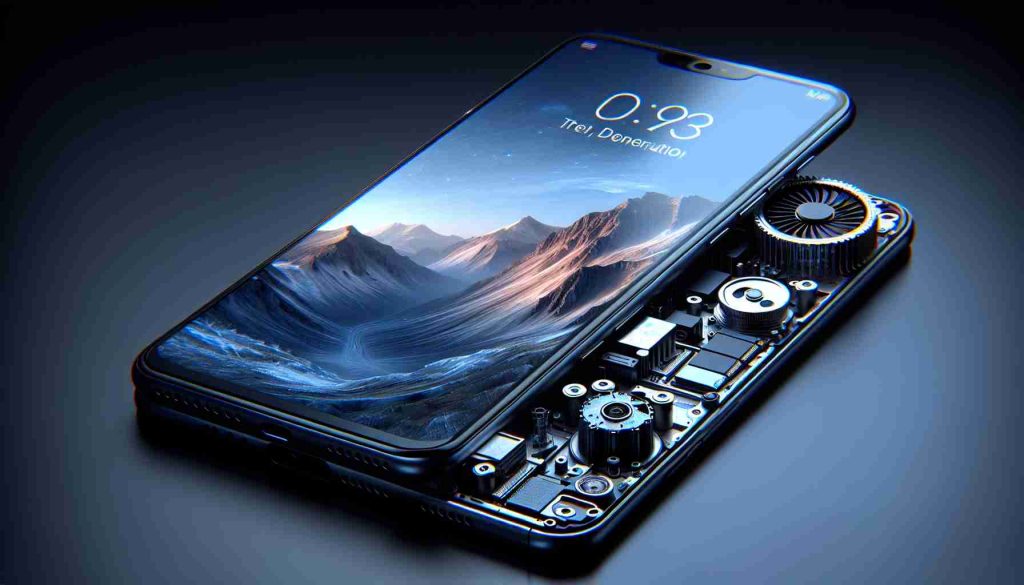On September 10, Apple officially introduced the iPhone 16 series, marking its entry into a new AI-driven era. The CEO, Tim Cook, emphasized the significance of this launch, referring to it as the beginning of an exhilarating time for the brand, highlighting the phone’s design centered around enhanced artificial intelligence capabilities.
The iPhone 16 boasts several cutting-edge features, making it one of Apple’s most significant updates since the iPhone 12. Although many AI functionalities were previewed at the Apple Developers Conference in June, the market anticipated this latest release. Interestingly, despite the excitement, there was little fluctuation in Apple’s stock price following the announcement.
With technology companies racing to integrate AI into their products, smartphones are becoming a key battleground. Analysts predict that AI features will motivate users to upgrade amidst slowing iPhone sales, with projections indicating a revenue growth of approximately 5% by 2025.
One of the standout features of the iPhone 16 is its dedicated AI camera control button. This button provides swift access to information about locations, menu items at restaurants, and even assists in recognizing dog breeds or landmarks, enhancing user convenience.
Apple’s advancements also extend to Siri, which will evolve to offer more contextual responses and personalized interactions. While global rollout will begin next month, specific language support will gradually become available, including for Chinese, French, Japanese, and Spanish in 2024.
As the tech giant preps for the new model, analysts are hopeful that AI will rejuvenate interest in the iPhone among users who’ve held onto devices for several years, particularly in markets like China, where AI appeal significantly outpaces that in the U.S.
Apple’s AI-Enhanced iPhone 16 Series: A Step Towards the Future
On September 10, Apple unveiled the much-anticipated iPhone 16 series, further pushing the boundaries of mobile technology with its AI-driven features. The launch not only highlights Apple’s commitment to innovation but also positions it as a formidable competitor in the rapidly evolving smartphone market.
Key Features of the iPhone 16 Series
The iPhone 16 introduces a host of advanced features that leverage artificial intelligence. In addition to the dedicated AI camera control button, which allows users to interact seamlessly with their surroundings, the new series includes improved machine learning capabilities for image processing and voice recognition. One notable advancement is the introduction of “Smart Focus,” an AI-driven system that automatically adjusts camera settings based on environmental conditions, ensuring optimal photo quality every time.
Additionally, the iPhone 16 series will incorporate an upgraded A18 chip, which enhances the processing power needed for complex AI tasks. This chip not only makes tasks more efficient but also improves battery life, a key concern for users. Alongside these improvements, Apple has introduced a feature called “AI Communication Assistant,” designed to assist users with drafting messages and emails in a more contextually accurate manner.
Important Questions and Answers
1. How will the AI features improve user experience?
The enhanced AI features, such as Smart Focus and the AI Communication Assistant, aim to simplify daily tasks for users, making interactions with their devices more intuitive and efficient.
2. What security measures are in place for these AI functionalities?
Apple emphasizes privacy and security, implementing on-device processing for many AI features. This means personal data remains on the device, minimizing exposure to external threats.
3. How does the iPhone 16 compare to competitors in the AI space?
While many smartphone manufacturers are integrating AI, Apple’s focus on seamless user experience and privacy set it apart. However, competition from brands like Google and Samsung, which are also investing heavily in AI technology, poses a challenge.
Key Challenges and Controversies
Despite the exciting features, Apple’s AI advancements are not without challenges. One significant concern is the public’s perception of AI privacy. Users are becoming increasingly wary of how their data is used, leading to skepticism regarding AI’s role in their devices. Furthermore, implementing robust AI tools requires continuous updates and potential performance training, raising concerns about long-term system reliability.
Another challenge lies in the competition landscape. As other tech giants ramp up their AI capabilities, Apple needs to ensure that its offerings do not solely rely on marketing but provide meaningful advantages over rivals. The anticipation of user acceptance and market penetration in regions with differing tech adaptability, such as developing countries, is also an ongoing challenge.
Advantages and Disadvantages
Advantages:
– Enhanced user experience through advanced AI features.
– Improved privacy as AI processing occurs on the device.
– Potential for attracting new users and retaining existing ones through innovative functionalities.
Disadvantages:
– Public skepticism towards AI and privacy concerns.
– High competition from other brands with similar or more advanced AI features.
– Dependence on continuous software updates for optimal performance.
In conclusion, the iPhone 16 series represents a bold step into the future of smartphones, marrying cutting-edge AI with user-focused design. As Apple officially rolls out these features next month, the industry will closely watch user reception and the overall impact on the smartphone market.
For more updates and information on Apple’s latest innovations, visit Apple’s official website.























